Determined to preserve the "big home" for tens of thousands of birds and storks.
Mrs. Vu Thi Khiem lives in a small, single-story house nestled amidst a tranquil forest of ancient trees. Despite being 85 years old, she still regularly goes to the forest each day to watch the birds fly back as the sun sets. Ms. Vu Thi Khiem, a Party member with nearly 60 years of Party membership, lost her husband in the 1968 Tet Offensive. Mrs. Khiem recounts: "My family came to clear land and settle here in 1949. Back then, this was a wild, overgrown area, and my family had to put in a lot of effort to cultivate the land to grow corn and potatoes. The remaining area was used for fruit trees and timber. A few years later, as the forest canopy closed, flocks of birds and egrets began to arrive. Initially, there were only a few dozen, but gradually they multiplied, and birds and egrets from other places also came to roost here."
|
Ms. Vu Thi Khiem recounted her story to the author. |
"Even if the land is fertile, if the people aren't friendly, the storks won't be able to live there." Mrs. Khiem thought this from a young age and decided to dedicate herself to the forest beside the coconut groves planted and cared for by her parents. Currently, her family's lush forest covers more than 5 hectares with approximately 500 mahogany trees, 300 jackfruit trees, 300 rosewood trees, 230 palm trees, 100 teak trees, 80 Terminalia trees, 70 longan trees, 50 ironwood trees, and over 1,400 bamboo and reed bushes; some ancient trees reach 40 meters in height, with trunks so large it takes two people to encircle them. Notably, this forest is regularly home to tens of thousands of birds, most notably storks of all kinds: white storks, striped storks, ivory storks, grey storks, egrets, herons, snake-necked storks, ibises, pelicans, grey herons, kingfishers, and many other rare species. According to scientific research, Mrs. Khiem's forest contains a total of approximately 40 species of birds, belonging to 21 families and 6 orders; among them, 29 species are resident, 4 are migratory, and 7 are both migratory and resident. Scientists have named this forest "Hai Luu Bird Garden".
Ms. Khiem excitedly shared that the birds go foraging from early morning until late evening. They travel far, some flying across the Lo River to feed in the rice fields around the foot of Nghia Linh Mountain and Hung Temple ( Phu Tho province). In the evening, they return in flocks, soaring in the sky before landing on the treetops, creating a lively and bustling atmosphere around the forest. Ms. Khiem often stands in the yard watching the birds return, listening to their chirping as they compete for perching spots, and feels happy. She recalled that about 25 years ago, because she lacked money for rice and her grandchildren's school fees, she took a knife to the forest intending to cut down some bamboo trees to sell. But when she reached the bamboo grove, she thought, if she cut these trees, the egrets would have nowhere to perch when they return at night; where would they sleep? So she quietly took her knife and went back down the hill.
In particular, for the past few decades, Ms. Khiem has refused all attractive offers from people inquiring about buying the bird sanctuary. Some have offered up to 70 billion VND for the sanctuary, but she resolutely refused to sell. Some even pledged to adopt her as their "foster sister," promising a fully furnished villa and... anything they wanted, just to buy the forest, but she also refused. Ms. Khiem confided: "In life, everyone needs and values money, but I absolutely refuse to sell the bird sanctuary because this is the 'home of the large stork family,' the culmination of my life's work. If I sell the forest, where will the storks live? Will the buyer have the dedication to protect and care for them?"
A lifetime dedicated to caring for the bird sanctuary.
Amidst the hazy evening mist, while waiting for the birds to return to their nests, Mrs. Khiem shared: “Protecting the forest and the flock of egrets is difficult enough for a strong man, but it’s even harder for me, a woman with delicate hands and feet. I guard the egrets with all my heart. In the past, poaching was almost non-existent, so the birds and egrets lived peacefully and carefree. During the breeding season, the entire forest was always filled with the chirping of birds and quail. But when restaurants specializing in ‘forest and wild bird dishes’ and ‘bigger birds’ started popping up, the poachers became more numerous and audacious. My family’s egret garden became a target for these ‘bird poachers,’ who lurked and hunted day and night.”
One night, hearing strange cries of storks, she realized thieves were there and called her son-in-law and some neighbors for help. When they arrived, they found the thieves had already shot two sacks of storks. When her son-in-law tried to intervene, the thieves surrounded him and beat him. She glared, her hands clenched, and shrieked, "You are so cruel! You killed so many mother storks! Who will feed the hundreds of baby storks? They will all die with their parents! You are heartless and unjust!" The bird thieves, stunned by the old woman's sharp and reasonable rebuke, bowed their heads and left. Looking at the tragically dead storks, Mrs. Khiem's heart ached as if it were being rubbed with salt...
Although her garden was carefully fenced, Mrs. Khiem rarely slept soundly. Even worse, bird thieves took advantage of stormy nights to act. Hearing strange noises and seeing the egrets scattering in panic, Mrs. Khiem would jump up, put on her raincoat, grab a flashlight, and hobble out to the garden to stop the thieves. Not only were the thieves from far away, but some young men from the village and commune also came. Once, Mrs. Khiem, along with other villagers and the local police, caught a thief who was shooting birds at night. The thief angrily pointed his air gun at her, threatening her, but she was not afraid.
|
A corner of Mrs. Vu Thi Khiem's heron garden in Dong Dua village, Hai Luu commune, Song Lo district ( Vinh Phuc province). |
Ms. Khiem confided: "Having lived with the storks for many years, I understand all the habits of each species. Their breeding season starts from March to August of the lunar calendar each year. Those are the happiest months because we get to see them reproduce, but it's also the time when my grandchildren and I lose sleep and are most afraid when the storks let out a frantic cry and fly away in panic. That panic is usually due to thieves coming to hunt and steal them. During the stork breeding season, I almost stay awake all night worrying about them and having to watch out for thieves. Many people say I'm crazy, that I'm insane... but I just do it with all my heart, out of affection for the birds and storks. I see that they also have lives and feelings just like humans."
With that thought in mind, for many years, rain or shine, or even when she was sick, she regularly went to the garden to look after the flock of storks. Storks don't raise each other's young. Therefore, after heavy rains and strong winds, Mrs. Khiem would diligently search for the baby storks that had fallen to the ground, finding ways to bring them back to their nests and their parents. Any that were weak or couldn't be returned to the nest, she would bring them home, keep them warm, feed them small shrimp and prawns, and raise them until they were fully feathered and able to forage for themselves before releasing them back into the garden.
The story of Ms. Vu Thi Khiem, who dedicated her life to protecting the forest and the stork population, has resonated with many people across the country. Recognizing the value of the stork sanctuary, since 2010, Song Lo district has built a concrete road from the left bank of the Song Lo River to the sanctuary and installed signposts. Every year, thousands of tourists visit the sanctuary for sightseeing and research. The Vinh Phuc Provincial Forest Protection Department has also supported her in protecting the forest and the birds.
War and time have taken many things from Mrs. Khiem, but they cannot take away the virtues, spiritual strength, willpower, and resilience of this frail, widowed soldier who dedicated her entire life to the "Hai Luu Bird Sanctuary." Now at an advanced age, Mrs. Khiem still tirelessly works to protect the forest and the tens of thousands of wild birds, contributing to the preservation of the ecological environment. She is like a "great guardian of the Hai Luu Bird Sanctuary." Her thoughts and actions have inspired many to voluntarily protect the forest and its natural wildlife, contributing to the preservation of a clean and sustainable natural environment.
Leaving the "Hai Luu Bird Sanctuary" as dusk fell, looking up at the sky and seeing tens of thousands of birds and egrets flying in large flocks, making the midland landscape beautiful and peaceful like something out of a fairy tale, I suddenly thought: This is a precious gift that "Mother Nature" and Ms. Vu Thi Khiem have given not only to Song Lo district, Vinh Phuc province, but to all of us.
For her contributions to environmental protection, Ms. Vu Thi Khiem has been awarded numerous certificates of merit, commemorative medals, and environmental awards by the People's Committee of Vinh Phuc province and various ministries and agencies. Notably, in 2024, Ms. Vu Thi Khiem was honored to be selected as one of the 25 outstanding individuals nationwide for "Studying and following the thoughts, ethics, and style of Ho Chi Minh" with the theme "Innovation and Development". |
Source: https://www.qdnd.vn/phong-su-dieu-tra/cuoc-thi-nhung-tam-guong-binh-di-ma-cao-quy-lan-thu-16/vuon-chim-hai-luu-cua-nguoi-vo-liet-si-826766


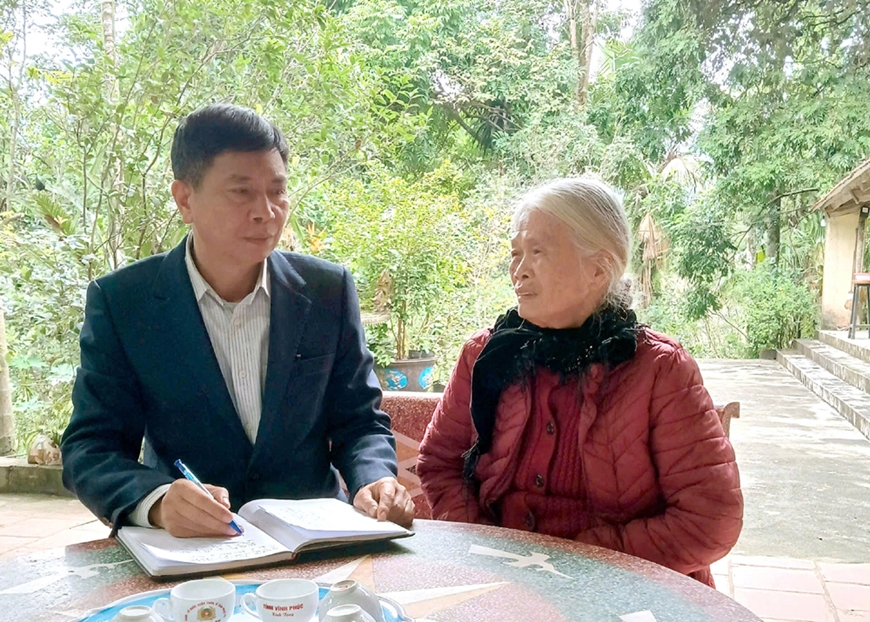
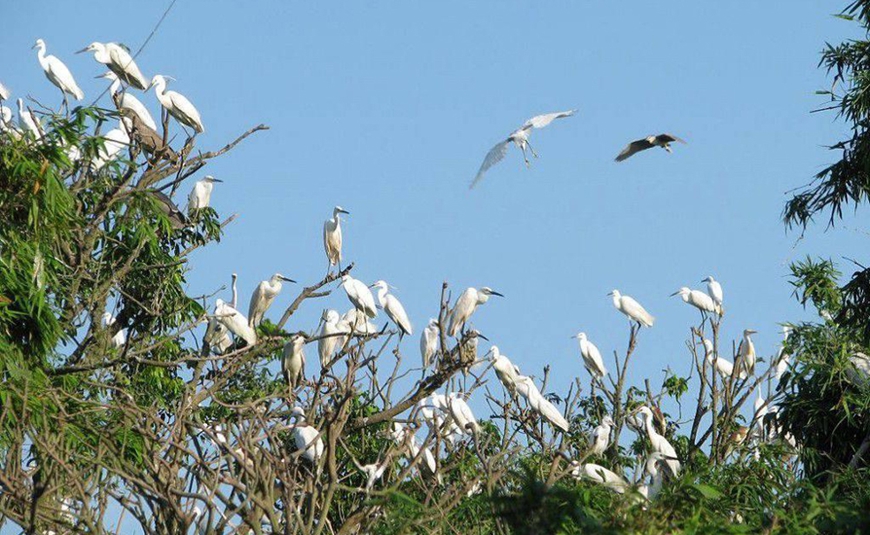

![[Photo] Closing Ceremony of the 10th Session of the 15th National Assembly](/_next/image?url=https%3A%2F%2Fvphoto.vietnam.vn%2Fthumb%2F1200x675%2Fvietnam%2Fresource%2FIMAGE%2F2025%2F12%2F11%2F1765448959967_image-1437-jpg.webp&w=3840&q=75)

















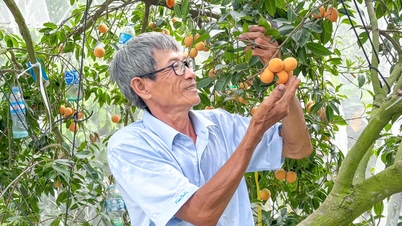

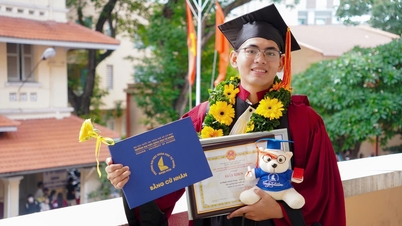












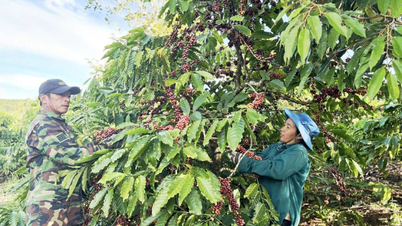












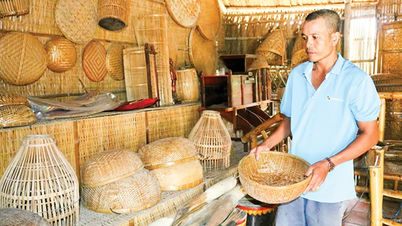




![[OFFICIAL] MISA GROUP ANNOUNCES ITS PIONEERING BRAND POSITIONING IN BUILDING AGENTIC AI FOR BUSINESSES, HOUSEHOLDS, AND THE GOVERNMENT](https://vphoto.vietnam.vn/thumb/402x226/vietnam/resource/IMAGE/2025/12/11/1765444754256_agentic-ai_postfb-scaled.png)





















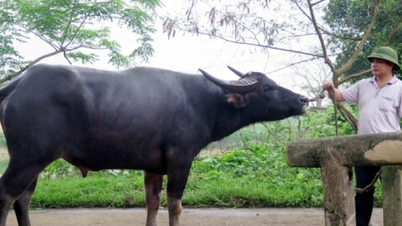






























Comment (0)